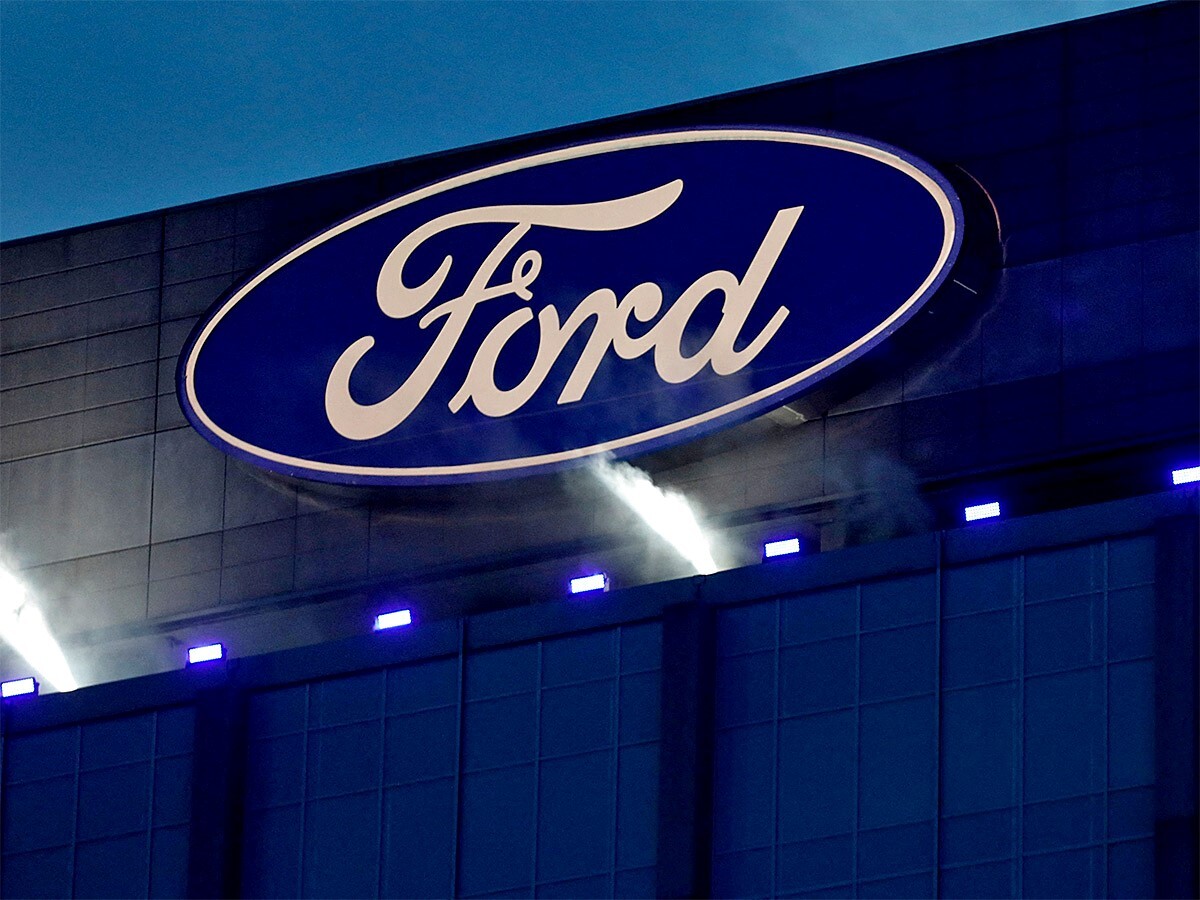Shares in motor company Ford [F] have continued to fall despite revealing a multi-billion dollar gain from its investment in electric truck maker Rivian [RIVN].
On 18 January Ford, which owns around 12% of Rivian, revealed that it had made $8.2bn from the group’s IPO in November.
However, it will classify this and the $900m first-quarter 2021 non-cash gain from the Rivian investment as a special item in its fourth-quarter and full-year results, which are due to be released on 3 February.
Ford and Rivian shares dropped after the announcement
Both gains will be excluded from Ford’s non-GAAP adjusted earnings before interest, taxes and adjusted earnings per share. Its full-year adjusted earnings before interest and taxes were previously forecast to come in at between $10.5bn and $11.5bn, including the gain. This means the profits to be reported in the December quarter will be lower, which is affecting Ford’s share price.
In the future, Ford’s mark-to-market revaluations to account for changes in Rivian’s stock price could also result in related gains or losses each quarter reported as special items.
Ford’s stock price has dropped 18.3% since the announcement, while Rivian’s stock price is down 17.6%. However, this may also be a reflection of the broader tech and EV selloff amid high inflation, concerns of interest rate hikes and continued semiconductor shortages.
Despite this recent drop, the Ford stock price was up 85.4% year-over year. According to Market Screener, Ford has a consensus ‘outperform’ rating and an average target price of $22. That compares with its current share price, which closed at $19.19 on 26 January.
In comparison, Rivian has a ‘buy’ rating and an average target price of $134.80, compared with its present $60.27.
Rivian stocks have faced difficulties since its IPO
Rivian’s loss of value since its IPO on 10 November is another factor, particularly as it “still looks extremely pricey relative to the company’s uncertain long-term prospects”.
Rivian has had a turbulent past few months, with its shares dropping 65% since 16 November. It was once valued at $100bn — higher than Ford — but that has since fallen to around $52bn.
Another hit came when long-time partner Amazon [AMZN] announced it was buying electric vehicles from rival Stellantis earlier this month.
Ford invested $500m in Rivian in 2019 and trumpeted that they would work on developing an EV luxury Lincoln together. That plan was scrapped back in 2020, but the two groups said they still intend to work on other projects.
However, Ford exited the Rivian board in October just before the IPO and shortly after declared that the two companies would no longer be working on projects together. Instead, they would both focus on their own projects and deliveries.
Ford could cash in
Some analysts argue that the chances of Ford selling and cashing in are growing. Ford’s investment no longer serves any strategic purpose, given that they are no longer working together on production, said Adam Levine-Weinberg in The Motley Fool.
Indeed, analysts believe that if Ford now sold its Rivian shares and took the $8.2bn gain then it could accelerate its own EV ambitions, which include plans to spend $30bn by 2030. This encompasses expanding its line of cars and building an assembly plant and battery plants in Kentucky and Tennessee.
Levine-Weinberg added: “Cashing out would give Ford a big cash infusion that it could use to accelerate its growth investments, fund restructuring efforts that would boost future profitability, or even just buy back some Ford stock.”
He said Ford is far ahead of Rivian when it comes to capacity, with plans to build 600,000 EVs annually by the end of 2023. Rivian’s current production capacity is 150,000 units, although it has plans to build a second factory with a 400,000 annual production capacity.
“Cashing out would give Ford a big cash infusion that it could use to accelerate its growth investments, fund restructuring efforts that would boost future profitability, or even just buy back some Ford stock” - Motley Fool's Adam Levine-Weinberg
Ford is still finding its place as an EV stock
There is still some uncertainty around Ford’s position as an EV stock, given it is not a solely EV-focused company like Rivian.
Jefferies analyst Phillipe Houchois recently downgraded Ford stock from a ‘buy’ to a ‘hold’ rating, stating that it was too early to see Ford as a high-flying EV stock. Houchois added that is still susceptible to production issues caused by the pandemic and the semiconductor shortage.
“We think it is premature to re-rate legacy [auto manufacturers] for their electric vehicle progress since earnings remain mostly driven by cyclical shortages, returns remain within historical norms and the EV transition is largely a zero-sum game initially,” Houchois said.
However, Mizuho analyst Vijah Rakesh has a $145 price target on Rivian. Rakesh believes it is well placed to take advantage of the SUV and trucks industry, which makes up around 70% of US vehicle sales “with premium margins”. He also believes Rivian can expand globally and scale its production.
Perhaps Ford might eventually conclude that the power of two could still be important to get ahead in the growing EV market.
Continue reading for FREE
- Includes free newsletter updates, unsubscribe anytime. Privacy policy





